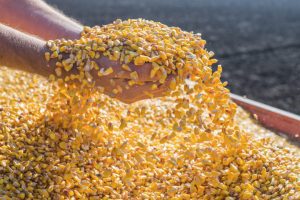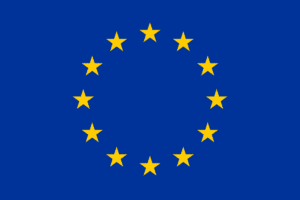
State-owned PrivatBank (Kyiv) raised limit on cash withdrawal at ATMs of its network for foreign cards and cards of other banks up to UAH 20 thousand per a transaction once in three hours since November 23, press-service of financial institution informed on Thursday.
“The increase in card cash-out limits for all Ukrainian and foreign banks will allow clients of all banks to access cash when necessary,” said PrivatBank board member for retail business Dmitry Musienko, quoted by the press service.
He added that at the moment there are more than 5 thousand ATMs in the network of PrivatBank in all regions of Ukraine.
The press service of the bank specified to Interfax-Ukraine news agency that previously the limit on withdrawal at PrivatBank ATMs of foreign and foreign cards was 10 thousand UAH.
ATMs, CASH, LIMIT, PRIVATBANK

From December 31, 2023, Ukraine will limit to a minimum the content of phosphates and other phosphorus compounds in household detergents (up to 0.1-0.2 gram), and from December 31 of the same year to December 31, 2026 will gradually limit the content of phosphates in industrial detergents (up to 0.05-0.1%). The relevant resolution on amendments to the technical regulations for detergents was adopted by the government at a session on Wednesday.
According to it, the document suggests limiting the content of phosphates in laundry detergents for household washing machines to 0.2 gram at the recommended wash dose for the main washing machine cycle, and in household dishwashers – up to 0.1 gram at a standard dose for loading a dishwasher with a table set for 12 persons.
In addition, from the same date, the mass fraction of total phosphorus in detergents for hand washing, laundry and cleaning, as well as in other detergents, is limited to 0.05% phosphorus.
At the same time, the previous technical regulation included only a washing powder (with a limitation of the phosphorus content to 0.5 gram in the dose recommended for washing in a washing machine) and a detergent for household dishwashers (0.3 gram), but the new edition suggests replacing a washing powder into a detergent for laundry and detailing into products for household and industrial use.
Limits on the content of total phosphorus in detergents used for industrial laundry, washing and cleaning are introduced in stages: in detergents for industrial washing machines it should be reduced from 0.1% from December 31, 2023 to 0.05% as of December 31, 2026, and for industrial dishwashers – from 0.25% to 0.1%.
At the same time, the voluntary application of the established restrictions is possible before the specified dates.
According to the document, the Cabinet of Ministers ordered the Ministry of Economy to update the List of National Standards for determining methods of testing detergents for compliance with the technical regulations within six months from the date of entry into force of the resolution.
In addition, the ministry, together with the Ministry of Natural Resources, the State Customs Service and the State Service for Food Safety and Consumer Protection, must develop and submit for approval to the Cabinet of Ministers a draft plan of measures for state market supervision and control of products for compliance with the technical regulations.
The regulation is effective six months from the date of publication (excluding the established dates for the reduction of phosphate content).
The explanatory note to the document notes that, according to official statistics, in recent years, there has been a tendency for a significant amount of phosphate-containing pollutants to enter the water bodies of Ukraine.
Meanwhile, the introduction of restrictions on the content of phosphates in detergents allows expecting a significant improvement of the ecological state of Ukrainian water bodies, primarily large rivers – the main sources of drinking water supply, in particular, reducing their eutrophication (bio-mass generation in a water-body).

The Ministry of Economy and grain market participants have agreed on a maximum corn export volume for the 2020/2021 marketing year (MY) in the amount of 24 million tonnes and will amend the annex to the memorandum of understanding between the grain market participants, the ministry said in a statement following a meeting held on January 25.
“Now, according to the regions, the projected corn production is 30.3 million tonnes, which is one of the best corn yields in all years. The Ministry of Economy believes that there are no problems with exporting corn to foreign markets or a probable shortage of this crop in the domestic market,” Economy Minister Ihor Petrashko said.
The report indicates that, if necessary, the parties agreed to revise the approved maximum amount of corn allowed for export, after the publication of official statistics on crop production in 2020.
As reported, the associations of poultry and livestock breeders initiated the restriction of corn exports at the level of 22 million tonnes in 2020/2021 MY in the “grain” memorandum. They argue their proposal to limit exports by the need to guarantee the domestic market 7.5 million tonnes of corn for production of animal feed.
The Ukrainian Grain Association considers the volume of corn exports at the level of 24 million tonnes acceptable for the market participants and corresponding to their forecasts of the harvest of this crop, acting executive director of the association Serhiy Ivaschenko told Interfax-Ukraine. Earlier, the association opposed the restriction of corn exports at the level of 22 million tonnes, since, in its opinion, the real goal of the initiators of the restrictions was to create an artificial surplus in the domestic grain market to reduce prices.
One of the members of the American Chamber of Commerce told Interfax-Ukraine that the association discussed the possibility of limiting corn exports before making a final decision and agreed that there was no urgent need for it, but if such a limitation is introduced, then it should be set at the level of 24 million tonnes, but not 22 million tonnes as suggested by its initiators.

The Verkhovna Rada has changed the age limit for working in the civil service.
The adoption of relevant bill No. 4096 was backed by 300 MPs at a meeting on Wednesday.
In particular, the Rada excluded from the law “On Civil Service” the provision that a person who has reached the age of 65 cannot enter the civil service.
Instead, they are given the opportunity to be appointed to a civil servant position for one year, with the right to reappointment without the obligatory annual competition.
The adopted bill provides that their further stay in the civil service is possible for no more than 70 years.
This law comes into force on the day following its publication.
Also, according to the law, the term of service in local self-government bodies was extended, but by no more than five years by the decision of the village, settlement, city chairman, chairman of the district, district one in the city, regional council. Such a decision to extend the term of service in local self-government bodies is made by the chairman of the relevant council annually, but no more than until the civil servant reaches the age of 70.

Ukraine should be integrated in the European Union and NATO, but it should have deeply developed relations with those regions of the world where it sees its national interests, Ukraine’s Deputy Prime Minister for European and Euro-Atlantic Integration Dmytro Kuleba said.
“I am deeply convinced that it would be a big mistake for Ukraine to limit itself solely to its western vector. The world is much bigger, much more complex, there are a lot of opportunities in the world,” Kuleba said on Ukrainian television.
At the same time, the deputy prime minister said he sees Ukraine as a member of the European Union and NATO.
“I see Ukraine as a state, integrated European and Euro-Atlantic state, which has deep developed relations with those regions of the world where it sees its national interests,” Kuleba said.
Kuleba said he sees Asia as such region as “the heart” of the world’s economy is now beating there.
“It’s China, India, Japan, South Korea, Singapore – that’s where the economic heart of the world is beating now,” Kuleba said.

Ukrenergo last night for the first time was forced to limit “green” generation at Botiyevska, Prymorska-1 and Orlovska wind farms (all are within DTEK Group), Andriy Gerus, the head of the Verkhovna Rada committee on energy and housing and utilities services, has stated.
“Such a limitation was 300-400 MW at certain hours of the night. Nevertheless, according to the existing rules, DTEK will still receive the payment of a feed-in euro tariff of UAH 2.9 per kWh (EUR0.102), despite the fact that the energy system did not need but did not use the electricity produced by the corresponding wind farms (the price of the matter is millions of hryvnias). The corresponding payment will fall on state-owned Energoatom, Ukrhydroenergo and the Ukrenergo tariff, which all consumers will pay for,” he said on Facebook.
Gerus emphasized that in the future this situation will occur more and more often.
“The problem is growing, and in spring it will reach a large-scale character. I am convinced that investments necessary for the state are those that benefit the state and give investors the opportunity to earn profit. And the state’s interest must be taken into account in this structure,” he said.
As reported, on October 16 the Rada energy committee approved bill No. 2236-2 (the Servant of the People party), which allows, when dispatching, to give priority to operator-producers of alternative energy with an installed capacity of up to 150 MW. Compensation of the cost of electricity not sold at the feed-in tariff in connection with dispatching restrictions is also provided to the stations whose capacity does not exceed 150 MW.